Banks are considered the backbone of a country’s economy. Its more true for a developing country like India. Indian Banking system is very strong. In the global financial turmoil that happened sometime ago, our country was least affected because of soundness of Indian Banking and Financial system. In fact many countries of the world are trying to learn lessons from our disciplined system of Banking.
Banks in India are not only strong but are also growing fast. According to studies. Banking sector is one of the fastest growing sectors in the country. This growth has brought many opportunities.
In the last two decades Public Sector Banks in India have witnessed a transition from traditional banking to modern technology driven banking. Exposure to competition has made these banks re-engineer and re-structure their processes, systems and product line. After economic liberalization these banks have been given enough freedom to do so. However, for various matters these are required to follow guidelines issued by Ministry of Finance, Reserve Bank of India and Indian Banks Association.
Post nationalization, the Banks were asked to open more branches in rural areas. Large number of people were recruited to man these newly opened branches. Expanded network gave a new identity to these banks and millions of new customers came to the fold of Banking. The business of Banking moved from class banking to mass banking.
Public sector banks in India employ more than 7 lakh people at present. Of these a large number of people will be retiring in next 5-6 years. To fill this gap and to take up the growing business the Banks are on a recruiting spree as can be seen in media and from vacancy announcements. Earlier officers were recruited only in Junior Management Grade. Now public sector banks are offering direct employment in middle and senior management cadres as well. Thus for both fresher’s and experienced people career opportunities are available in public sector banks. To meet their manpower requirements these banks are presently recruiting in large numbers both in clerical and officer cadre.
Our Successful Students in Competitive Exams

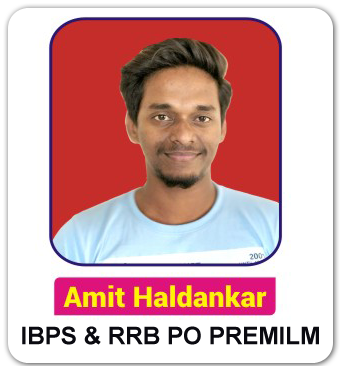
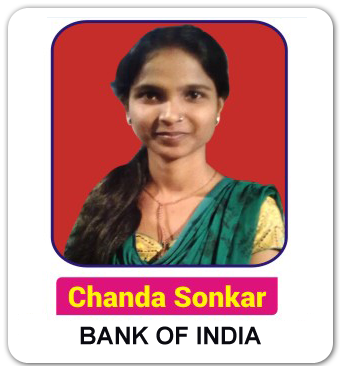
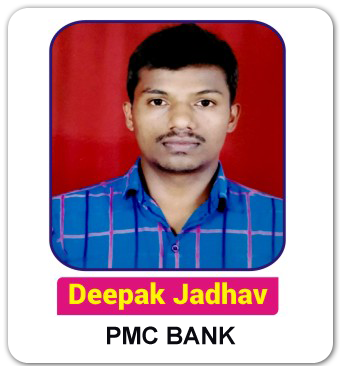

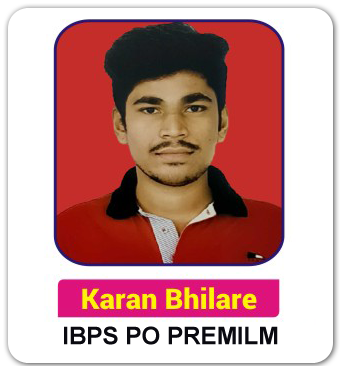

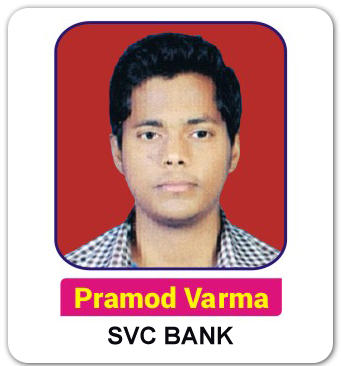
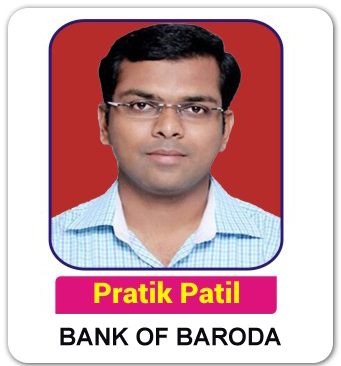

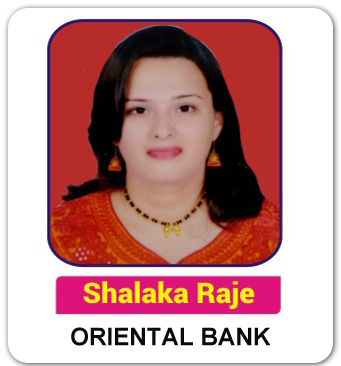
| ORGANISATION AND POST | AGE LIMIT | Minimum Qualification | TENTATIVE NOTIFICATION EVERY YEAR | APPROX SALARY | |
| RBI | Grade. ‘B’ | 21-30 | Graduation | May/June | 800000 |
| Assistant | 21-28 | Graduation | June/July | 40000-50000 | |
| Attendant | 18-27 | Under-Graduate | Nov/Dec | 18000-25000 | |
| IPPB | Clerk | 20-30 | Graduation | June/July | 25000-30000 |
| NABARD | Grade A & B | 21-28 | Graduation | Feb/March | 50000-70000 |
| SBI | PO | 21-30 | Graduation | April/May | 80000-100000 |
| Clerk | 20-28 | Graduation | Jan/Feb | 30000-45000 | |
| SO | 20-30 | MBA/ENG/IT | April/May | 60000-70000 | |
| IBPS | PO | 20-30 | Graduation | July/Aug | 60000-80000 |
| CLERK | 20-28 | Graduation | Aug/Sep | 20000-35000 | |
| SO | 20-30 | MBA/ENG/IT | Sep/Oct | 50000-60000 | |
| IBPS RRB | OS-1/2/3 | 18-30 | Graduation | June/July | 30000-50000 |
| ASSISTANT | 18-20 | Graduation | June/July | 25000-30000 | |
Career Progression
There is a well defined career progression path in each public sector bank. Performance and potential are key elements which determine this career progression. Most senior officials in public sector banks started their career as clerk or scale I officer only. In tune with the time banks have reviewed their promotion policy and now for bright, hardworking and knowledgeable employees it takes less time to move to higher scales. In many banks a person who joined as an officer may reach to the position of Genera Manager in 14 years. After that one can aspire for the position of executive director or chairman of a bank. These are very high positions, nomination to which is decided by the Government and not by the individual banks.
Many public sector banks have a network of foreign branches. Thus joining a public sector bank gives you the opportunity of working abroad also. Transferability in a bank job provides you the chance of seeing different parts of the country.
Career progression of Officers
Junior Management Grade – Scale I: Officer
Middle Management Grade – Scale II: Manager
Middle Management Grade – Scale III: Senior Manager
Senior Management Grade – Scale IV: Chief Manager
Senior Management Grade Scale V: Assistant General Manager
Top Management Grade Scale VI: Deputy General Manager
Top Management Grade Scale VII: General Manager
Public Sector Banks in India
1. State Bank of India
2. Punjab National Bank
3. Bank of Baroda
4. Bank of India
5. Canara Bank
6. Allahabad Bank
7. Andhra Bank
8. Bank of Maharashtra
9. Central Bank of India
10. Corporation Bank
11. Dena Bank
12. Indian Bank
13. Indian Overseas Bank
14. Oriental Bank of Commerce
15. Punjab and Sind Bank
16. Syndicate Bank
17. UCO Bank
18. United Bank of India
19. Union Bank of India
20. Vijaya Bank
21. IDBI
Selection Procedure
These candidates are selected through online exam conducted by IBPS for 21 nationalize banks together as per their requirements, for SBI &RBI . Put together there are 12 to 15 exams per annum. This is huge opportunities for today’s graduate to get entry in PSU banks. Since Jan 2016 there is no interview for any clerical recruitment. Only for Probationary Officer (PO) position there is interview of shortlisted candidate after online Main exam. But weightage of this interview is 20% (80% weightage for online exam)
Exams
EXAM PATTERN FOR PRELIMS (IBPS/RBI/SBI)
| No. | Subject | Questions | Marks | Time |
| 1 | Quantitative Aptitude |
35 |
35 |
1 Hr. (60 min) |
| 2 | Logical reasoning |
35 |
35 |
|
| 3 | English |
30 |
30 |
|
| 4 | TOTAL |
100 |
100 |
MAINS EXAM FOR RBI ASSISTAN
| NO. | SUBJECT | Questions | MARKS | TIME |
| 1. | QUANTITATIVE APTITUDE |
40 |
40 |
2 Hr. |
| 2. | LOGICAL REASONING |
40 |
40 |
|
| 3. | ENGLISH |
40 |
40 |
|
| 4. | GENERAL AWARENESS |
40 |
40 |
|
| 5. | COMPUTEER |
40 |
40 |
|
| TOTAL |
200 |
200 |
MAINS EXAM FOR SBI/IBPS PO
NO. | SUBJECT | Q | MARKS | TIME |
1. | Reasoning and computer aptitude | 45 | 60 | 60 min. |
2. | General/Economy/Banking awareness | 40 | 40 | 35 Min |
3. | English Language | 35 | 40 | 40 Min |
4. | Data Analysis & Interpretation | 35 | 60 | 45 Min |
Total | 155 | 200 |
IBPS PO-25 MRKS 30 MINS I SBI PO 50 MRKS 1 HR
NOTE: INTERVIEW : IBPS 100 MARKS 1 HOUR I SBI GD 20 MARKS PI-30
NOTE: IBPS/SBI PO MAINS OFFLINE TEST, English Language (Letter Writing & Essay)
RBI GRADE-B
Subjects | Questions | Max Marks | Duration |
Phase I | |||
Logical Reasoning | 40 | 40 | (2 Hr) 120 Mins |
Quantitative Aptitude | 40 | 40 | |
English | 40 | 40 | |
General Awareness | 40 | 40 | |
Phase II | |||
English(Essay &Letter in Hindi/English) |
| 100 |
|
Economics &Social Issues |
| 100 |
|
Optional Paper(Finance & Management /Economics/ Statistics |
| 100 | (1.5 Hr) 90 Mins |
PHASE III |
|
|
|
Interview |
| 50 |
|

